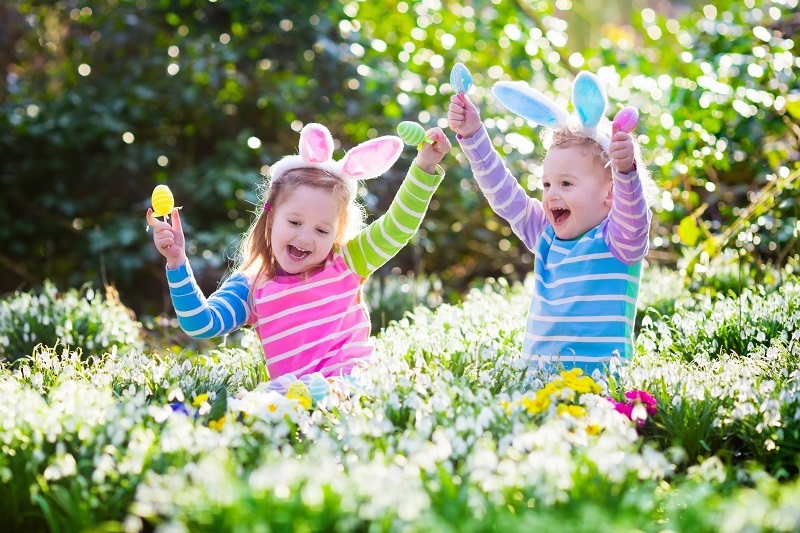From January to December: Understanding Birth Month Flowers
Posted on 17/08/2025
From January to December: Understanding Birth Month Flowers
Birth month flowers are a fascinating tradition that dates back centuries, assigning each month of the year a unique flower. Just as birthstones hold special significance, these monthly blossoms symbolize various virtues, emotions, and characteristics. Whether you're seeking a thoughtful gift, planning a birthday bouquet, or just love the language of flowers, understanding the meaning behind each birth month flower can add a personal and heartfelt touch to your celebrations.

What Are Birth Month Flowers?
Birth month flowers, also known as birthday flowers, are specific blossoming plants associated with each month of the year. These flowers carry age-old meanings and are used globally to represent the month someone was born. Gifting a person their birth flower is considered a unique and personal way to honor their birthday and express well wishes.
Monthly Guide: The Significance of Each Birth Month Flower
- January: Carnation & Snowdrop
- February: Violet & Primrose
- March: Daffodil
- April: Daisy & Sweet Pea
- May: Lily of the Valley & Hawthorn
- June: Rose & Honeysuckle
- July: Larkspur & Water Lily
- August: Gladiolus & Poppy
- September: Aster & Morning Glory
- October: Marigold & Cosmos
- November: Chrysanthemum
- December: Narcissus & Holly
January: Carnation & Snowdrop
The January birth flowers are the carnation and the snowdrop.
- Carnation: Symbolizes love, fascination, and distinction. Carnations come in a variety of colors, each with its own significance--from red for admiration to white for purity.
- Snowdrop: Representing hope and rebirth, snowdrops bloom in the coldest months, making them a true symbol of optimism and the promise of spring.
February: Violet & Primrose
The birth month flowers for February include the violet and the primrose.
- Violet: Associated with loyalty, faithfulness, and modesty, violets are delicate, usually purple, and have been cherished for generations.
- Primrose: A harbinger of spring, the primrose embodies young love and new beginnings.
March: Daffodil
March's primary birth month flower is the daffodil.
Daffodils are known for their bright and cheerful appearance, representing renewal and rebirth. This flower perfectly matches the changing of seasons and the coming of spring.
The daffodil stands for unmatched love and affection, making it a popular choice for March-born individuals.
April: Daisy & Sweet Pea
Those born in April can claim two beautiful blossoms--the daisy and the sweet pea.
- Daisy: Symbolizes innocence, purity, and true love. With their simple yet attractive appearance, daisies are often associated with cheerfulness.
- Sweet Pea: This fragrant flower signifies pleasure and goodbyes, often representing blissful pleasure or bidding a fond farewell.
May: Lily of the Valley & Hawthorn
May's birth month flowers are well-loved for their charm and fragrance.
- Lily of the Valley: Often found in wedding bouquets, this delicate bell-shaped flower represents humility, sweetness, and a return to happiness.
- Hawthorn: Associated with hope and supreme happiness, hawthorn blossoms add a touch of nostalgia, often symbolizing love and protection.
June: Rose & Honeysuckle
The most iconic of all birth flowers, the rose, along with the honeysuckle, represent the month of June.
- Rose: Universally recognized as a symbol of love and passion, roses span a variety of colors, each holding unique significance--red for love, yellow for friendship, white for purity, and pink for gratitude and admiration.
- Honeysuckle: Denotes everlasting bonds of love, happiness, and devotion, thanks to its sweet scent and twining nature.
July: Larkspur & Water Lily
Those born in July are represented by larkspur and water lily.
- Larkspur: Symbolizes positivity, openness, and strong bonds of love. Different colors are associated with different meanings: pink for fickleness, white for happiness, and purple for first love.
- Water Lily: Representing purity, majesty, and rebirth, the water lily grows from muddy waters to bloom beautifully at the surface, symbolizing enlightenment and new beginnings.
August: Gladiolus & Poppy
August birth month flowers are equally striking and full of history.
- Gladiolus: Symbolizes strength of character, faithfulness, and moral integrity. The tall, colorful stalks evoke infatuation and remembrance.
- Poppy: Known for their vibrant hues, poppies represent imagination, consolation, and remembrance, and in some cultures, even peace and sleep.
September: Aster & Morning Glory
September's birth flowers hold fascinating meanings.
- Aster: Named after the Greek word for "star," the aster symbolizes wisdom, valor, and faith. This dainty yet resilient fall flower is often used to convey deep emotional love and affection.
- Morning Glory: Reflects affection, mortality, and the joys of fleeting beauty, thanks to its tendency to bloom in the morning and close by the afternoon.
October: Marigold & Cosmos
October celebrates birthdays with the marigold and cosmos.
- Marigold: Bonfire-bright and beautiful, the marigold represents creativity, passion, and warmth. In some cultures, it is also a symbol of remembrance.
- Cosmos: With its orderly petals and harmonious shape, cosmos denotes peace, modesty, and balance.
November: Chrysanthemum
The sole birth flower for November is the chrysanthemum.
- Chrysanthemum: Symbolizing loyalty, cheerfulness, and longevity, this flower is revered in many cultures, particularly in Asia. The color of the chrysanthemum often adds extra layers of meaning--red for love, white for truth, and yellow for neglected love.
December: Narcissus & Holly
December's birth month flowers are both meaningful and festive.
- Narcissus (Paperwhite): Represents good wishes, hope, and wealth. Its delicate white or yellow petals make it a delightful sign of warmth in winter.
- Holly: Associated with protection and joy, holly's spiky leaves and bright red berries symbolize happiness, goodwill, and cheer during the holiday season.
How to Choose the Perfect Birth Month Flower Arrangement
When choosing flowers for a birthday celebration, using the receiver's birth month flower can make your bouquet or arrangement especially meaningful. Here are a few tips:
- Consider combinations: Mix the featured birth flower with complementary blooms to create a unique and personalized bouquet.
- Customized messages: Include a note explaining the meaning behind the chosen birth flower for an extra special touch.
- Use color symbolisms: Each flower color carries different meanings, allowing you to further personalize your gift.
- Long-lasting options: Some birth flowers, like chrysanthemums and carnations, last longer in a vase, making them ideal for gifts and home decor.
Why Birth Month Flowers Make Meaningful Gifts
Gifting birth flowers is a tradition filled with thoughtfulness and symbolism. Unlike many generic gifts, personalized flower bouquets tailored to the recipient's birth month feel exclusive and well-considered. They honor the uniqueness of each individual and connect them to ancient customs and the natural world.
Furthermore, understanding birth month flowers helps deepen our appreciation for floral symbolism and the silent messages flowers convey--messages of friendship, loyalty, hope, and renewal.
The Global Variations of Birthday Flowers
While the list above reflects primarily Western traditions, birth month flowers do vary in different cultures. For example:
- In Japan, the cherry blossom is synonymous with April, while in other countries, lilies and roses prevail.
- In some Slavic and Eastern European countries, flowers like the snowdrop and violet are strongly woven into seasonal celebrations and local folklore.
These cultural differences further enrich the tradition and allow for greater personalization when selecting birthday flowers for friends and loved ones overseas.
Birth Month Flowers and Their Uses Beyond Birthdays
While typically associated with birthdays, these monthly blooms can also be used in:
- Weddings: Incorporate your birth flower for personal symbolism in wedding bouquets or decorations.
- Anniversaries: Celebrate each year together with your partner's or your joint birth flowers.
- Home decor: Add meaningful beauty to your living space by displaying your birth flower throughout the year.
- Tattoos and jewelry: Birth flowers make unique and eye-catching tattoo and jewelry designs for those seeking personalized symbolism.
The Language of Flowers: Floriography
The tradition of assigning meaning to flowers goes far beyond birthdays. In the Victorian era, floriography--the language of flowers--was a way to send unspoken messages. Each flower (and even its color) was imbued with distinct meanings. By choosing birth month flowers for gifts or decor, you are participating in a rich cultural history of symbolism, providing an extra layer of meaning to your gesture.
Caring for Your Birth Month Flowers
If you've received a bouquet or want to enjoy your birthday flower for as long as possible, here are some tips:
- Trim stems: Cut flowers at an angle and remove leaves below the waterline to prevent rot.
- Change water regularly: Fresh water extends the life of your floral arrangements.
- Keep them cool: Most flowers last longer when kept away from direct sunlight and heat sources.
- Use flower food: Add provided flower food or a homemade mix of sugar and vinegar to prolong freshness.

Fun Facts About Birth Month Flowers
- Daffodils (March's birth flower) are one of the first flowers to bloom in spring, often emerging even through late snow.
- Roses (June's birth flower) have been cultivated for over 5,000 years and symbolize love across countless cultures.
- Chrysanthemums are considered symbols of the sun in Japan and have an entire national festival dedicated to them.
- Marigolds are used in Dia de los Muertos celebrations across Mexico to honor departed loved ones.
Conclusion: Celebrate with Birth Month Flowers All Year Round
Birth month flowers add beauty, meaning, and sentiment to every celebration, from birthdays to weddings and beyond. Understanding their symbolism enriches our appreciation for both the natural world and the people we celebrate. Whether sending heartfelt wishes, expressing love, or simply decorating your home, incorporating birth month flowers from January to December is a delightful and timeless tradition.
Next time you want to make someone's birthday (or your own!) truly special, remember the language of flowers. A thoughtful arrangement of birth month blossoms speaks volumes without saying a word.
Latest Posts
From January to December: Understanding Birth Month Flowers
What in Nature Mirrors Your Distinct Characteristics
Three effortless methods to keep your flowers fresh and lively





